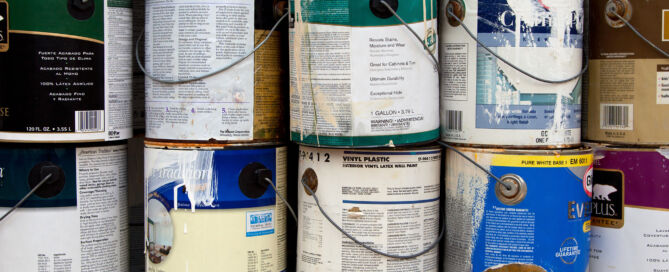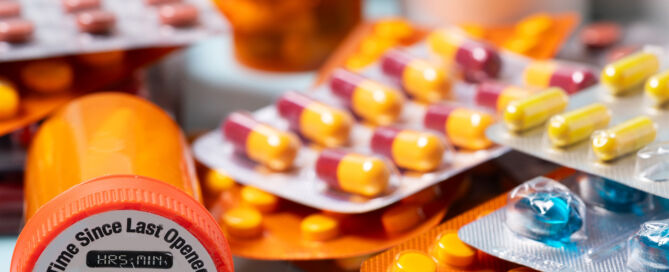Support EPR in New York
Contact Your Legislators
If you believe in the importance of Extended Producer Responsibility (EPR) to improve recycling and reduce packaging waste in New York, we need your voice! EPR is a powerful policy that holds producers accountable for the waste they create and helps build a more sustainable recycling system for all New Yorkers.
Take action today by contacting your State Senator and Assembly Member to urge them to support the Packaging Reduction and Recycling Infrastructure Act (S1464 / A1749).
Use our tools below to easily find your legislators and send them a personalized message. You can customize it to make it even more personal. Your message could make a difference in moving this critical legislation forward!

Action Alert
Get involved and take action!
Signup for Action Alerts
Follow These Steps
NYPSC supports a legislative amendment to The New York State Electronic Equipment Recycling and Reuse Act
NYPSC has developed a Solutions Platform to address challenges that have been encountered during the implementation of the NYS e-waste recycling law.
NYPSC encourages local governments to pass a resolution to support a legislative amendment.
Active Legislation
Click on a material below to learn more about current active laws passed in New York State.
The New York State Electronic Equipment Recycling and Reuse Act was signed into law on May 28, 2010. It requires manufacturers to manage and fund programs for the collection and recycling of electronic waste in New York State. This law is intended to relieve New York local municipalities of the costly burden of managing hazardous e-waste, and provide free and convenient recycling of electronics to consumers and businesses in New York State.
Although the Act has succeeded in increasing electronics recovery, the requirements for manufacturer collection are not keeping pace with the amount of e-scrap being collected. This results in unexpected costs to local governments and discontinuation of permanent collection sites. Insufficient manufacturer support is causing instability in the electronics recycling market, which is eroding the law’s intent to provide free and convenient collection to all NYS residents.
Extended producer responsibility (EPR) laws for paint are an effective solution for providing consumers with a responsible and convenient way to dispose of unused paint, while reducing the financial burden on local government. The American Coatings Association, which represents paint manufacturers in the U.S., actively supports EPR legislation for paint.
Under paint EPR laws, PaintCare, an industry-run non-profit organization, is responsible for the major costs of managing leftover latex and oil-based paint, including transportation, recycling, and processing. In addition to partnering with local government programs to collect paint, PaintCare establishes retail collection locations throughout the state, increasing convenience for consumers and relieving local governments of the financial burden of paint collection. Learn more about PaintCare through the Product Stewardship Institute’s free, recorded webinars.
Primary Battery Bill
A 6280-A/S 1448-A would establish a primary (single use) battery recycling program paid for and managed by battery manufacturers. The program laid out by the bill could capture nearly 7 million pounds of primary batteries annually. NYPSC strongly supports the intent of the bill, and has proposed revisions that would improve the overall success and sustainability of the program.
Take action for battery stewardship: send a letter of support to the Assembly bill sponsor, and the Senate bill sponsor today. Feel free to borrow language from ours.
Rechargeable Battery Law
The NY State Rechargeable Battery Recycling Act was signed into law December 10, 2010. Manufacturers must arrange for and finance the recycling of all used rechargeable batteries collected by retailers.
Press Release (December 15, 2010)
Summary of NY Rechargeable Battery Legislation
- Retailers selling rechargeable batteries are required to post signage in-store advising consumers of the disposal ban and of the opportunity to recycle batteries at their locations.
- If retailers are selling batteries remotely (i.e. via catalog, phone, internet), they must notify the consumer of the disposal ban and how to access free recycling.
- Rechargeable battery manufacturers must arrange for and finance the recycling of all used rechargeable batteries collected by retailers.
- The Department of Environmental Conservation must approve the manufacturers’ plans to finance and operate the collection program. Violators of the law will be subject to civil penalties.
A lack of safe disposal options contributes to the national drug abuse epidemic that is now the leading cause of injury death in the U.S., ahead of car accidents. More than 2,000 people in New York State die annually from opioid overdose, most commonly from prescription pain relievers. Moreover, when flushed or thrown away, many pharmaceuticals end up in waterways, causing harm to the ecosystem and potentially affecting sources of drinking water.
NY Drug Take-Back Act
In 2018, NYPSC helped pass the NY Drug Take-Back Act, in strategic collaboration with the NYS Association of Counties and Citizens Campaign for the Environment, by rallying local and regional government support for the bill, and providing recommendations to sponsors Senator Hannon and Assemblywoman Gunther that improved the bill. The new law will ensure safe, convenient access to drug take-back programs that are financed and managed by manufacturers.
Regulations for Drug Take-Back Law
The 2018 NY Drug Take-Back Act will provide safe, convenient access to drug take-back programs financed and managed by manufacturers–but only if the regulations are written to ensure the law is implemented as intended.
In November 2019, NYPSC and many other New York stakeholders submitted joint recommendations to help ensure that the regulations fulfill the intent of the New York State Drug Take Back Act to provide free, convenient access to safe drug disposal for all New Yorkers. These recommendations include:
- Expedite the timeline for program implementation
- Allow all authorized collectors to participate in the program at the manufacturer’s expense.
- Pharmacies enrolled in the DEC Pilot Project should be rolled into the new program, unless they decline the opportunity.
- Include a statewide convenience standard.
- Require collection receptacles (aka “kiosks” or “drop boxes”) at pharmacies and other authorized collectors participating in the program.
- Maximize the effectiveness of mail back (as a supplement to collection receptacles).
- Make manufacturers pay the full cost of the program.
- Ensure transparency in the rulemaking process.
- Expedite the timeline for program implementation
Faulty Drug Take-Back Bill Defeated!
On December 18th, 2017, Governor Andrew Cuomo vetoed S.06750/A.387-B, a faulty drug take-back bill which would have let pharmaceutical producers avoid responsibility for the recovery of unwanted drugs that put New York residents’ lives at risk, and preempted local governments from enacting effective pharmaceutical producer responsibility laws. The veto was a win for NYPSC which, in strategic collaboration with Citizens Campaign for the Environment and dozens of other groups across the state, urged the Governor to veto this bill and, instead, propose an effective program funded by pharmaceutical manufacturers.
When Governor Cuomo vetoed the flawed bill, he instructed the NYS DEC to develop recommendations for a statewide manufacturer-funded drug take-back program by May 15. NYPSC attended all three of NYS DEC’s roundtable meetings to provide recommendations about best practices and program implementation, and to answer technical questions.
Drug Take-Back Pilot in NY Hospitals
NYPSC and the Product Stewardship Institute (PSI) received a solid waste management grant from the U.S. Department of Agriculture Rural Development Office to run a six-month drug take-back pilot program and public education campaign with five hospitals serving rural New York State.
This pilot program will culminate in summer of 2018 with 1) a national webinar to share results and lessons learned and 2) an online Toolkit for medical professionals complete with safe drug disposal information and tools they can use to educate their patients to properly remove leftover drugs from their homes. NYPSC will also help hospitals that wish to continue collecting drugs transition into NYS DEC’s program or take over their own program.



